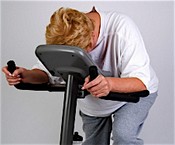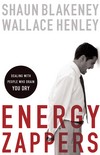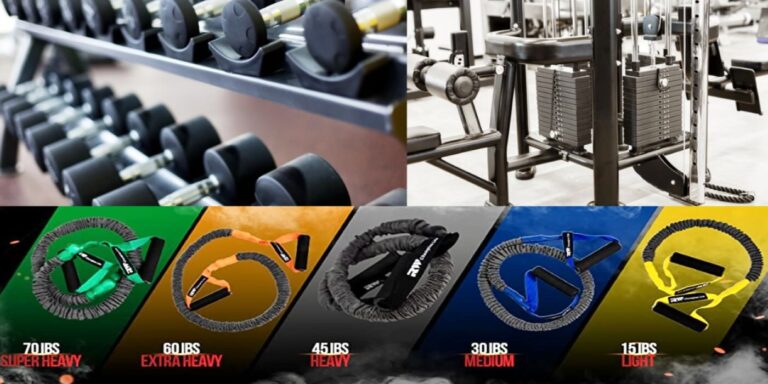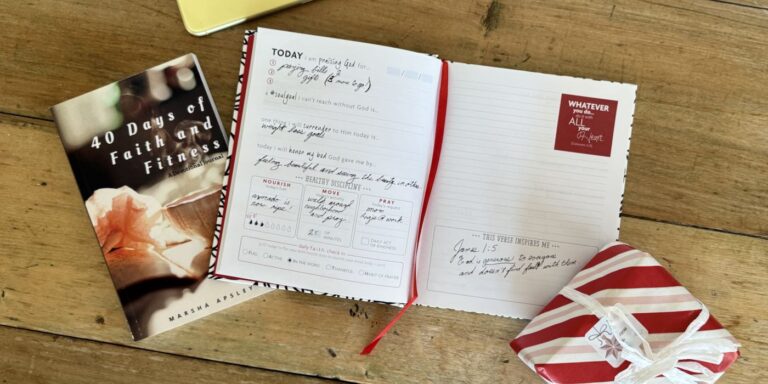You’ll find them everywhere—angry team mates, a pot-stirring workout partner, a stride-breaking walking companion, a critical personal trainer or simply someone who chats more than they exercise. ‘Energy Zappers’ can make your fitness fizzle and cause you to fall short of your goals. Pastor and author Wallace Henley will help you keep your wellness plans on track and discover the greater potential you have through Christ to shape the spiritual lives of others.
Now we know why Abe Lincoln hardly ever smiled. In addition to being married to a woman who was to Lincoln’s emotions what a barbell is to a pole-vaulter, the President spent each day in an aquarium loaded with sharks. In the book, Lincoln The Unknown, the somber chief of state is quoted, “I sometimes fancy that every one of the throng that comes to see me daily darts at me with thumb and finger and picks out his piece of my vitality and carries it away.”
Draining people didn’t go away with the end of the Lincoln era. Chances are they’re frothing around in the worlds you inhabit—work, school, athletic field, gym, church. Maybe even there are a few energy-zapping folk at your dinner table every night.
Shaun Blakeney—my co-author—and I asked staff members at our two large churches to provide us a list of the types of people who drain them the most. Our colleagues at Saddleback Church and Houston’s Second Baptist gave us so many suggestions we could have written a War and Peace-sized volume. So, Shaun and I reduced the nominees to 21 types of draining folk who can be counted on to leave you limp, no matter how healthy you are.
The result was our book, Energy Zappers. Here’s a look at three of the energy-zappers, along with thoughts about how to handle them before they reduce you to a piece of dried fruit.
 ANGERERS
ANGERERS
Angerers drain you by creating discord in your soul and group. When a leader allows angerers to bring him or her to full boil, everybody gets drained, credibility cracked, respect ruined and leadership lost. When the angerers in your midst cause the cauldron of your emotions to red-line to the explosion point, allow the truth about your own motives and a focus on your mission to provide the calming effect in your mind.
First century Palestine sat atop smoldering anger. Pharisees snarled at Sadducees, who smirked at those they considered their intellectual inferiors. The Romans taunted the Jews, who hated the oppressors. Cheated shoppers loathed the money-changers. The rich scorned the poor, who resented the wealthy. The Zealots despised the Herodians, and Herod and his patrons struck cruelly at any one threatening them.
And everyone was mad at Jesus. He succeeded at His mission, but anger could have derailed it at any point. He demonstrates how important it is for a leader to know the warning signs that the angerer is zapping emotional energy from himself and his followers.
Here are key indicators that the angerers are zapping your energy:
- When the actions of others grow in your perception as personal insults.
- When personal insults are allowed to fester.
- When you are diverted from your identity and mission because of your anger.
- When you begin to use your emotional energy and creativity to plot mayhem and revenge against the angerers.
There are positive actions to keep the angerers from draining you dry:
Connect with who you are.
If you are settled about your identity, the barbs of the angerers won’t threaten you with self-doubt that sparks a reaction.
Connect with what you’re about.
Jesus never lost sight of why He was in the world. Because of that, the antagonism was actually a confirmation that He was on track.
Connect with your own limitations.
Honesty about yourself will douse the angerers’ darts. It’s vital to recognize your limitations. That will set you free from the tendencies allowing your adversary to make a fool of you and our mission.
Connect with your responsibility.
The angerers have no power over you if you don’t let them. To douse the angerers, don’t be a victim who blames them for your own loss of temper, but take responsibility for your own actions.
 STRIDEBREAKERS
STRIDEBREAKERS
Stride-breakers drain you by trying to get you to run by their rhythm and pace. The principle that works in sport is applicable in all life relationships and endeavors. Stride-breakers can upset the pace of your marriage, parenting, group-leading, work and everything else you do.
Stride-breakers batter you with a storm of words, sets of agendas, and speed of pace that mess up your game, foul your plans, hinder your goals, thwart your mission, dry up your vision and trip you in the pursuit. In short, they are drainers. Here are two big clues that will let you know the stride-breakers are in danger of slowing you:
- You are seriously drained when want someone else to take the point and set the pace.
- When you trip over your own feet because you’re focusing on a new pacesetter, you’re being drained of your stride.
There are positive steps you can take to stay “in step” when the stride-breakers are threatening to knock you off pace:
Keep your eye on the goal, not the stride-breaker.
The key to Jesus’ amazing ability to run a race in which the agonizing cross was the finish line was to focus on the goal (our redemption), not the finish line.
Know your own stride
There are three ways you know your personal stride. Know your gifts, the special abilities with which you serve God and others. Second, acknowledge your talents, those strengths natural to you. Third, align your skills with your gifts and talents.
Be willing to stretch.
Finding your own stride doesn’t mean an unwillingness to stretch it if you can. Growth means enlarging your abilities within the giftedness, talents and personality God has given you. You’re still running at your pace, but quickening it and expanding your stride.
Encourage others to stay on stride
In a baseball game, Phil Rizzuto trotted out to his field position in the top of the 9th inning, with his Yankees behind 9-0. Before the opposing team came to bat, Rizzuto turned away momentarily from the batter’s box, too dejected to look. He caught sight of DiMaggio, in center field. Immediately, Rizzuto said, he felt, “We’re going to win this game.” DiMaggio was the symbol of victory, and all it took was his presence to keep his team on stride to victory. [from Giuliani, op.cit., page 108] Run the whole race with the end in mind.
Jesus shows if we refuse to be pulled off stride, no matter what other runners are doing, no matter the intrigues that pull at us, no matter how much the past tries to slow our gait, we will win the gold. His Kingdom, still advancing in the earth after 20 centuries, proves it.
WOUNDERS
The wounders drain you with pain. In the Bible it says, Christ knows “the feeling of our infirmities.” And to some small measure, we feel His pain as well. Paul writes in the Bible, we “fill up that which is behind of the afflictions of Christ” in our work for and in His name in the world.
The signs the wounders are draining us in a tiny way parallel His wounds on the cross.
- The wounders are depleting you when you no longer feel like walking toward the need.
- You are almost bled dry when your hands are hurting too badly to serve someone else.
- You are seriously drained when the wound to your heart is so large your energy is gushing out.
- When your mind reels with pain, your capacity for rational thought is ebbing away.
The wounders can drain you so much that you lose your capacity to function. That’s why it’s vital to take steps like these:
Forgive the people who wounded you.
Of all the words Jesus uttered from the cross, perhaps none were more surprising than, “Father, forgive them, for they know not what they do.” To forgive the wounders in your life, allow the will to pull your train, not the emotions. I’ve never seen a train whose engine was a caboose and whose caboose was an engine. Yet that’s the kind of train we try to build when we expect the wounded emotions to provide the power. Forgiving your wounders will plug the big hole they’ve punched in your heart.
Do all possible to heal the wounds of the wounders.
In Energy Zappers, Shaun Blakeney tells of a lady we call “Jackie,” who seems intent on hurting people with words. Shaun says that like so many people, Jackie’s a wounding drainer because she’s so wounded. As a leader who claims to follow the Master Leader and Relater, Shaun says his task is not to respond to her assaults with slicing retorts, but to seek to heal Jackie’s wounds by making her feel important to the group and significant to its members—starting with him.
This is what Jesus did for the repentant thief. Perhaps the man had been a reject all his life. Now the Lord of glory tells the dying man he has a place in God’s Paradise. For the first time ever, someone has touched the deep pain that has caused him to wound others.
Understand the pain is part of the process leading to the accomplishment of your mission.
God wastes nothing. Whatever comes into your life contributes to His purpose in and through you (Romans 8:28-29). And that includes your wounds.
Celebrate the victory brought by the wounds.
“Tetelestai”—“It is finished!,” Jesus shouts. Not “I am finished,” but “it is finished!” Right there in the midst of the searing wounds, the howling mobs, Jesus has a party. He celebrates the victory. After His resurrection, Jesus showed His scars to Thomas, not only to persuade His doubting friend, but to display the victory. If you understand the wounds are the means to your success, you can forgive the draining wounder and celebrate, not as a masochist, but as a victor.
My dad was an alcoholic. I enshrined bitterness toward him in my soul for a long time. One day it occurred to me that, as Alan Paton reminds us in Cry, the Beloved Country, wounds heal wounds. God had seen my destiny before I was born, and had foreseen my father’s alcoholism and the pain it would bring. God didn’t cause my father’s problem, but in His foreknowledge chose that dad for me. Why? So I could relate to the pain I would seek to help heal as a pastor.
When I saw that, I celebrated every tear, every disappointment, every deep wound to my heart in those growing-up years. Compassion and forgiveness for my father flooded my heart. I was no longer drained, but filled to overflowing. In the deepest way possible, I had come to love the drainer. And that ultimately is the attitude with which we must confront all the energy zappers in our lives!
 Wallace Henley is a pastor at Second Baptist Church in Houston, Texas, and is the author of more than a dozen books. He began his career as a journalist and served as an assistant to President Nixon and a chief of staff for a U.S. Congressman.
Wallace Henley is a pastor at Second Baptist Church in Houston, Texas, and is the author of more than a dozen books. He began his career as a journalist and served as an assistant to President Nixon and a chief of staff for a U.S. Congressman.







